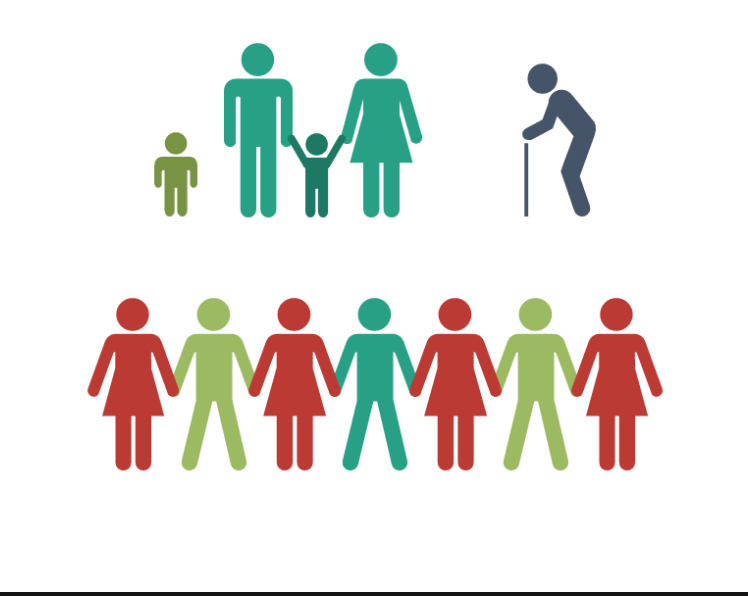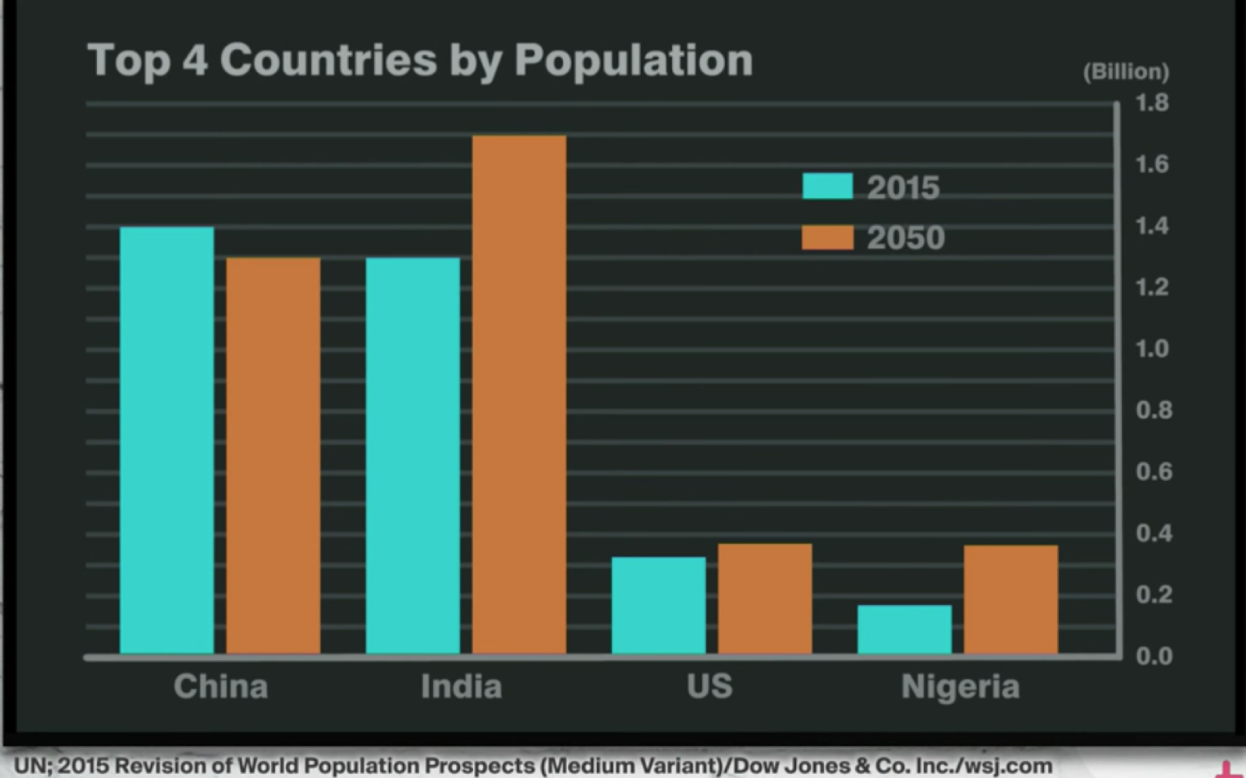
The world population doubled exponentially over the past 50 years. Figures from the United Nations suggest that by 2050, world population would have risen to 9.8 billion people from the current level of 7.7 billion people in 2018. By the year 2100, the population would have risen to 11 billion people. These are staggering numbers to say the least, considering that the planet on which we live isn’t growing as the population continues to increase.
According to Joel Cohen, in his highly informative video “An Introduction to Demography (Malthus Miffed: Are People the Problem?) “, over the past 56 years, the annual population growth rate reached 2.1% per year between 1965 to 1970. The current population growth rate has slowed down to about half of that, as a result of changes in the reproduction habits (fertility rate) of people. For instance, the fertility rate among women in developed nations is down to 2.5 kids from 5 kids in the past. Meanwhile in Sub-Saharan Africa (Nigeria included), the fertility rate hasn’t changed much (fertility rate slightly fell to 5.1 kids from 6.5 kids in the past).
On a global scale, economists and analysts at large foresee the following challenges:
- More older living people than any time in history
- Vastly growing younger populations in poor countries
- Degrading environment (sustainability issues)
- Rising older population
- Lower fertility rate
- Weak household consumption growth
- Increasing political unrest
- Immigration problems
- Issues with minimum wage
- Insufficient borrowings and savings
- Continued risk of losing skilled workers
- Policies that fail to connect with the needs of the populace
The current population of Nigeria is 196 million people. As it currently stands 0-14 years age group represents 42.5% of its existing population. By 2050, the population is expected to rise to 411 million people, thereby make it the world’s 4th most populous country. This rise is expected to increase pressure on the Nation’s already complicated unemployment and infrastructural challenges, in addition to the other challenges listed earlier.
In Nigeria’s case, one of the worrying challenges since the start of 2018 is brain drain. This brain drain is a form of human capital flight were the most sought-after professionals are attracted to more favorable and living conditions outside of their country. In the current landscape of Nigeria, highly skilled professionals are moving to Canada in search of better opportunities.
Another challenge of note has to do with the increasing demand for electricity consumption that a rising population will require. Looking at the age structure of populations, if the younger population is on the rise in Nigeria we could see more electricity consumption. This is opposed to reduced electricity consumption due to a rising older population in countries.
So what’s next for Nigeria? As Nigeria heads to the polls in 2019, its citizens need to choose candidates that will embrace better ideas towards solving its demographic challenges, with a focus of mobilising investments in healthcare and education. Without human capital development (i.e. investing in good health and education of its citizens), the future of Nigeria will continue to deteriorate.
What is the cost of not focusing on these big issues posed by its rising population size? From a microeconomic standpoint, we could see declining income levels, a fall in consumption, as well as the negative effects of a slowdown in GDP growth on individuals and households. Looking at it from this same cost from a macroeconomic perspective, Nigeria faces the real life consequences of a continued decline in its foreign reserves, (thereby affecting its ability to protect its naira currency), a slowdown in economic growth from consecutive years of reduced production output (Gross Domestic Product (GDP)), rising inflation, increase in taxes, and not to talk of the risk of a higher crime rate from lack of options available for a young and unemployed citizens.
The government that comes into power will be expected to introduce policies that would serve as a foundation for governments coming into power to work with in the longer term. For more on the future of human capital development in Nigeria, check out Bill Gates visit to Nigeria in March 2018, where he spoke on the future of Nigeria in front of Nigerian Leaders. (The video is split in two parts)
By Akinfemi Onadele

